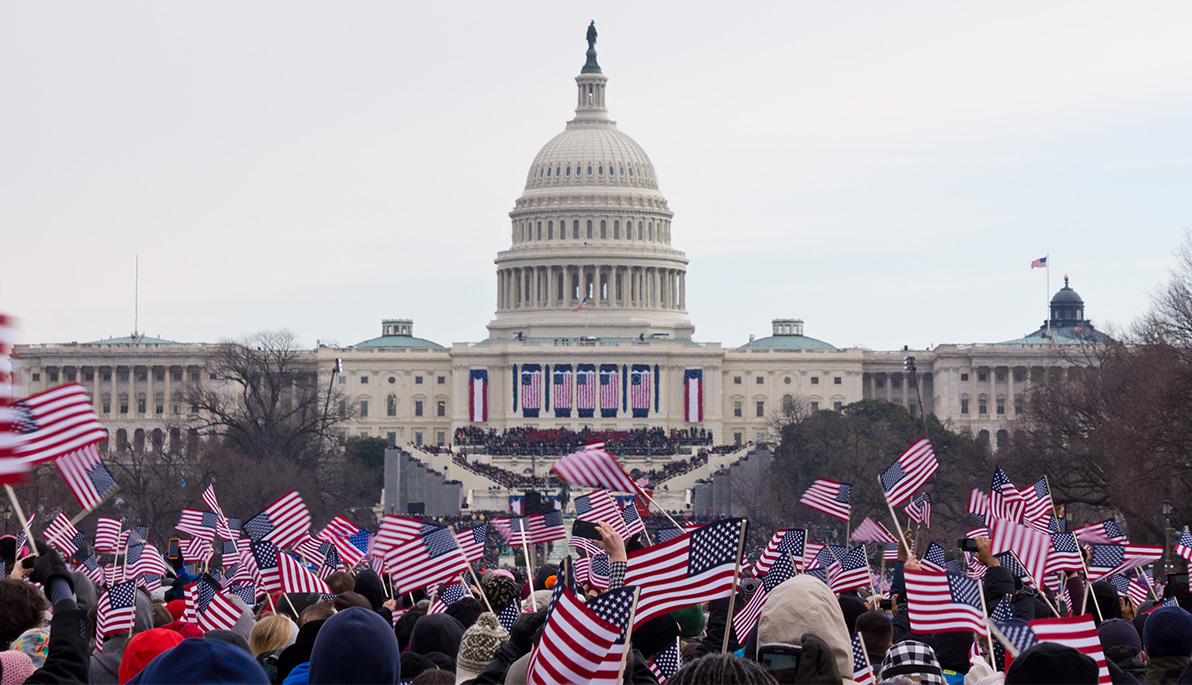News
How Will History Remember This Inauguration?
January 19, 2021
On January 20, 2021, Joe Biden will be sworn in as the 46th president of the United States. The 2020 election and, subsequently, this inauguration have been two of the most contentious events in American history. As the country prepares for a new administration, looking to the future, how will history remember this inauguration?
Joanne Grasso, D.A., is adjunct associate professor of social sciences in the College of Arts and Sciences. She teaches history and political science, specializing in the American Revolution, the American presidency, and the Founding Documents, particularly in political and intellectual history. The Box reached out to her for her perspective on how this inauguration will be remembered.
The better question to ask is, “What will history remember from this current generation of candidates and inaugurations in the decades to come when the current era is filled with contention, mortal sickness, and open division?” Maybe, the best answer is to look to American history and see how past generations dealt with extreme situations and continued in the path to the future, despite what was in front of them.
Depending upon the era, the history of the American presidency, its elections, and inaugurations have been filled with contention and opposition or courage, amenability, and peace. In addressing the difficult elections, inaugurations, and presidencies, there are highlighted examples that stand out in American history and show that history usually remembers the opposition rather than the peace.
In John Adams’ administration, who was the second president and a Federalist (akin to today’s Republicans), the Jeffersonians (today’s Democrats), with Thomas Jefferson as the vice president, undermined Adams’ administration and contributed to his one-term presidency. Thomas Jefferson, as the third president, was the first major contested election, which led to the 12th amendment and eventually to the duel between Alexander Hamilton and Aaron Burr, in which Alexander Hamilton was mortally wounded. The seventh president, Andrew Jackson, who was the presidential example of a new era, attempted to usher in a new kind of inauguration party. He opened up the White House to the public, and it quickly turned into a rowdy unruly mob, which had to be manipulated into going outside with alcohol on the lawn. Abraham Lincoln’s election, as the 16th president, was the final contributing factor for the secession of 11 Southern states from the Union. As a Republican candidate who won a plurality of the votes of four candidates, his party platform believed in not extending slavery into the new territories. He was inaugurated in March 1861, and the Civil War began in April. Lincoln’s vice president, Andrew Johnson, would be the first president impeached for his opposition to Congressional policies in a time when over a million people were killed in the Civil War, and the country was rebuilding economically, politically, and socially during Reconstruction. Theodore Roosevelt, the 26th president, was in opposition to his hand-picked successor, Howard Taft, who was also his vice president, for not following the policies and cabinet positions they had agreed upon. This eventually led to the contentious election of 1912 and Roosevelt’s candidacy in the Bull Moose Party [a third party formed by Roosevelt after he lost the Republican presidential nomination to Taft] and the loss of the Republicans to the Democrats. In the 20th century, the elections would toggle back and forth between Democrats and Republicans with the major issues of wars, segregation, the economy, and loyalty to the government as part of the party platforms of candidates.




